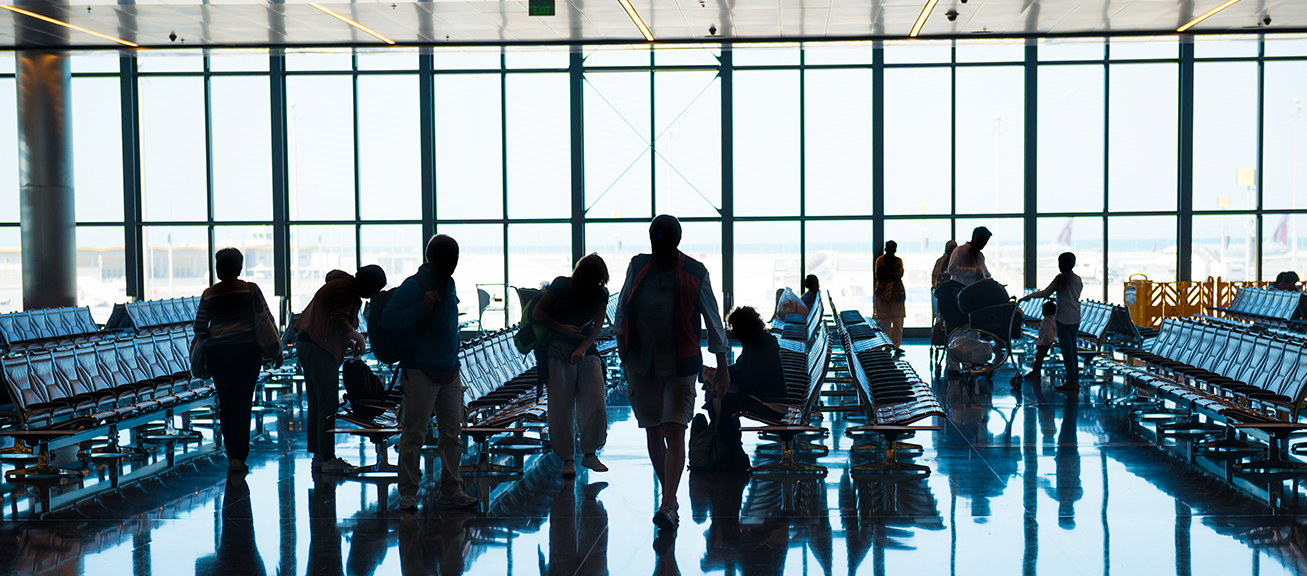Millions of air travelers cross borders of hundreds of countries every day and there is one common thing they all have to do - pass certain checkpoints before they leave the airport. These checkpoints are usually referred to as airport customs and immigration.
Airports officers are checking travelers whether they have the right documents, have the right to cross the border, and if they don’t travel with prohibited items. Each traveler is ought to pass through customs and immigration both at the airport in a foreign country and when they are back home.
How do customs and immigration differ?
Immigration implies people trespassing country borders. When arriving at the airport, travelers have to pass the such known “passport control” or “border control” in order to be able to make it into the country. On the other hand, customs are about the items people carry with them when crossing borders.
While you can skip the customs in many airports worldwide, the immigration process is mandatory. Therefore, you will have to talk to an airport immigration officer. Passing through customs is optional as you may not actually have any luggage with you, and hence nothing to declare.
When do you pass through customs?
Usually, you’ll have to go through customs and immigration when arriving in a new country, no matter if you have connecting flights or it is just a regular flight. But, as expected, there are exceptions.
For instance, some countries started cooperating to speed up the customs and immigration process, and with regard to this, they installed checkpoints before boarding. Let’s say, Suppose that you travel from Ireland to the US. In this case, you will have to pass US customs in Ireland. But when arriving in the US from any other country, you will have to go through customs, if it is your first arrival and no matter if you have connecting flights onward.
In some cases, you will go through customs when arriving at the final destination. For instance, if you travel from the US to anywhere in Europe and have a layover in the Schengen Area before making it to the final Schengen country, you’ll go through the immigration process there, but won’t proceed to go through customs until you reach the final destination.
What to keep in mind when you pass through customs and immigration.
When arriving at the passport control, you may be asked certain questions by the airport immigration officer. Such questions might be related to your purpose of visit, the duration of your stay, your job, and the cities you’ll be visiting.
The same applies to the border control you’ll be passing through when you get back home. So, you may be asked how long did you stay abroad, where did you stay and, the most common question, is there anything you have to declare.
Are there any customs fees?
Depending on the amount of a certain item, you may or not pay customs fees, or else known as customs duty. These customs duties are essentially taxes on the goods you hold when crossing international borders.
What you can’t bring through US customs?
There are several things you may be prohibited from taking into the US when coming back from abroad. In some cases, you may be obligated to pay a certain customs duty if you take more than you are allowed to. And in most cases, you may have to take only a certain amount of an item in order to avoid paying the customs fees. Here’s a list that we gathered that may help you visualize what you can take and in which amounts.
- Alcohol - 1 liter duty-free + 3% customs duty for every other liter imposed.
- Tobacco - 200 cigarettes and 100 cigars per person. If you take more than that, you may not only find yourself taxed but also airport customs officers may confiscate them from you.
- Meat and produce - fresh meats are usually prohibited, but there are some exceptions on cured and processed meats, and the way these are packed.
- Cheese - the same as meats.
- Plants are prohibited. The same applies to crafts made from plant materials.
- Pieces of art - may cause some trouble, and should be checked before proceeding to pass through customs.
What is mandatory to be declared at the customs desk?
When TSA officers ask you if you have something to declare, say “Yes” if you brought with you:
- Anything purchased abroad for personal use or as a gift;
- Any received gifts while being abroad;
- Anything inherited during the journey;
- Any item bought in duty-free shops;
- Anything meant for work, either for personal use or to see, no matter if you took it from the US and are bringing it back home:
- Food, alcohol, and tobacco.
These are several types of items you have to declare at US customs. Please check with the US Customs and Border Protection if you have any other questions on items that have to be declared at the US border.
What happens if you don’t declare something at the US customs?
If you declare a prohibited item at customs, you may find it confiscated from you as a penalty. But if you carry something in your baggage that you didn’t declare but you should have done it, then the penalty might vary.
If you got caught for the first time not declaring something unessential that you forgot about, you may be left with a simple warning. But if you get caught with a prior record, then you can end up paying several hundred dollar fines. For instance, meats and produce can sometimes come with $10,000 fines.
Additionally, as these infractions get recorded, you may be checked more intensely during future air trips. In some exceptional cases (perhaps when the infractions are really bad), travelers who detain Global Entry or TSA PreCheck may find themselves stripped of the privilege of being their members and benefiting from these services.

